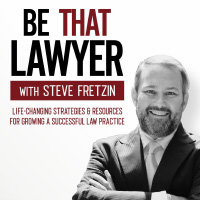
If you live in Boston, it’s pretty hard to ignore what is going on with the sports scene. For the past 17 years or so the Boston Red Sox and the New England Patriots have won many championships and you can throw in a few championships as well from the Boston Celtics and the Boston Bruins. Because of the sports culture of the city, sports does tend to be a popular topic in networking situations. But if you’re like me, sports viewing does not occupy a significant portion of your free time. I tune in when one of our teams makes it to the championship round and I may enjoy one night a year at Fenway Park, although I’m just as likely to end up at Fenway to hear a concert featuring aging rockers (I saw the Who this past summer-inspiring to see that Pete Townsend can still twirl his arm while playing guitar and not end up in the hospital).
Sports does tend to be a topic of great interest to many of the people in my business networks, and despite my general disinterest in spending a few hours watching baseball, football or any other sport for that matter, I have never found that to be a hindrance in to getting to know other professionals. In fact, while I am not that interested in spending time watching sports, I’m perfectly happy to hear what others have to say about our teams. In other words, I consider myself a sports fan fan.
The advantage of being a sports fan fan is that you don’t have to be emotionally invested in the outcomes and experience the disappointments that come inevitably in most seasons. In Boston, it’s also a lot cheaper than buying a ticket. And it frees up a lot of time for other pursuits (both personal and professional).
On the other hand, it is nice to be informed, and I would have to say that I greatly enjoy meeting somebody who is very enthusiastic about sports. “Some game last night!” and then I basically let them do all the talking. It’s an efficient way to get up to speed on the latest trends, injuries, and upset victories and losses.
The truth is that being interested in other people is a very good way to connect with them. The basic idea is that you want to be interesting and have something to talk about (your own personal interests/hobbies/vacations/movies you’ve seen; a case you are working on; interesting developments in your practice area). But it is even more important to be interested in other people. Dale Carnegie wrote about this almost a century ago in How to Win Friends and Influence People (become generally interested in other people).
This means that when I’m trying to connect with people at networking events, I show interest in them first. If they have a professional interest or expertise, I’m happy to ask questions about that. If they seem interested in talking about sports or some other hobby/interest I don’t share, I ask a lot of questions to learn more. Some people I meet are interested in world travel. Others are very interested in music and still others are interested in the outdoors, skiing, biking or dogs. You don’t have to be interested in what they are interested in order to show appreciation and since your interest in connecting with them.
Of course if you do share a common interest with somebody, then you can then you have more natural ways to connect with them over time. If you discover you share the same political beliefs or religious orientation, those are particularly strong bonds (although you obviously want to be very careful with these topics); but in terms of just keeping the conversation going, your initial connection could be around something that is more interesting to them.
In the meantime, “Go Pats!” and “How about them BoSox?”—I believe we’ll just have to wait until next season! But let me check with my son, a huge Pats and Sox fan and I’ll get back to you!








